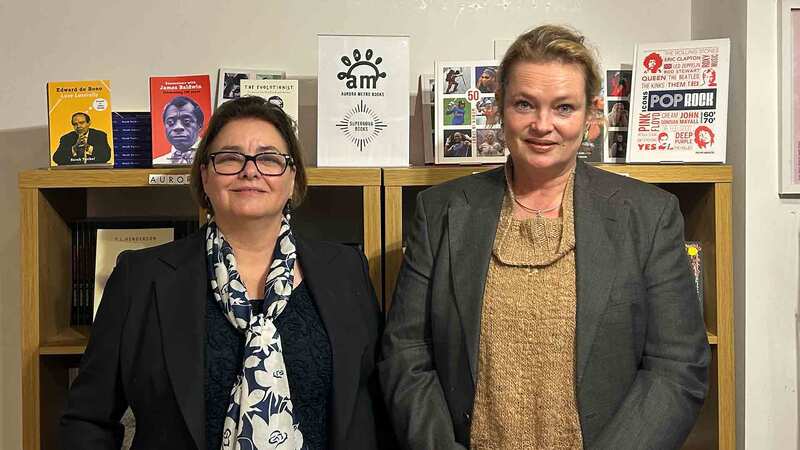You are viewing your 1 free article this month. Login to read more articles.
Sergiy Grushko: Booknet
Advertorial
Sergiy Grushko is the co-owner and chief executive officer of booknet.com, the international literary platform and social media network. Almost all Booknet content is self-published e-books. Though there are many similar projects, Booknet has been persistently promoting its own book-selling model called Bookscription. In this interview we’re going to take a look at Bookscription and its features, as well as Booknet itself.
Sergiy, Booknet has been in the market for years, but there’s still little information about it.
Indeed. Booknet has existed for more than seven years. It’s just that we’d started our project in the Russian self-publishing market (as Litnet), where we became a great success. It was much later that we launched the Spanish and Ukrainian-speaking versions of Booknet, and after that came the English-speaking one, which was launched several years ago.
However, the beginning of the war set things straight. Being a Ukrainian team, we stopped e-book sales in Russia and Belarus since the beginning of the full-scale invasion in February and focused on developing other language versions. We even sold Litnet, our Russian-speaking version, several months later.
How successful was Litnet, exactly?
Speaking about selling, Litnet sold 16 million e-books by Russian authors last year. At the same time, publishing houses printed 23 million copies of books by Russian writers in 2021 altogether.
Why is Bookscription still not so popular beyond the Russian-speaking market?
First, let me clarify about its popularity. Bookscription shows excellent results, but we’ll talk a bit more about it later. Firstly, I’d like to discuss the model itself.
In the world of self-publishing, a publishing method where an author writes and successively publishes chapters of an e-book exists for a long time. There’s even a monetization model where readers have to pay for each chapter if they want to read an e-book.
However, the main disadvantage of such a model is that, in case a book isn’t yet complete, no one knows what its final price is going to be for a customer. Yet more so, if such a book is being written for over two years, or more … Such a situation suits neither readers, nor publishing houses, that are constantly looking for the future bestsellers in the self-publishing area.
In its turn, Bookscription offers fair conditions. A customer pays a one-time fixed fee for a book which is still being written and gradually published by an author. The customer gains access to chapters and episodes as soon as they’re published.
That is, with a single payment – similar to an ordinary book purchase – we’ve given readers a possibility to enjoy e-books throughout their creation.
You’ve mentioned that Bookscription is popular not only in Russia.
It’s so. The Spainsh-speaking version’s statistics shows that the amount of e-books authors sell via the Bookscription model within two to three months exceeds the amount of the exact same complete e-books they sell during the first couple of years. It’s our Spanish-speaking version of Booknet that has experienced the sales record in 2021, when the author sold 10,425 copies of a book within the first 24 hours of sales.
How popular is Bookscription bookselling model in the English-speaking version of Booknet?
The English-speaking version is the newest one, and we’ve launched it as a test version. For now, the number of daily visitors is still five times less compared to the Spanish one. On the one hand, the English-speaking literary market is enormous; on the other hand, marketing costs have to be significant as well, because we must be sure that the project is elaborate enough to invest in its marketing. So we’re still experimenting before making big investments in it.
Do you sell e-books from Publishing Houses?
Yes, we do. We’ve created a separate page for publishing houses and redesigned it recently. Now we’re busy preparing some marketing perks for the launch. Our idea is to test those perks with some assistance from the Spanish publishing houses, but we hope we’ll be able to present the first e-books from the publishing houses in our English-speaking version in the nearest future. We’re currently working on it.
What do you mean by literary competitions alongside publishing houses?
It is our special offer for publishing houses. For example, we would launch a literary competition within a very narrow topic, let’s say, "Cinderella of our time". The prize would be the printed publication of the winner’s e-book by a publishing house. Since a publishing house representative gets access to the engagement statistics of readers for books participating in the competition, there’s no need for authors to cheat. A large number of readers or "likes" don’t count here; the publisher sees how a book is read by chapters, and if it’s able to hook the readers’ attention.
We’ve been successful in holding literary competitions for our Spanish-speaking version. As for the Russian-speaking version we sold, similar competitions even initiated separate literary series launches by top local publishing houses.
So, in case the editors are reading this interview, we’d like to assure them they’re welcome to partake.
From where exactly does your team operate?
Most of our employees stayed in Ukraine. And though some had moved to European countries this year, the majority of them came back. We hope to see The Bookseller at the International Book Arsenal Festival in Kyiv one day. You’ll be very welcome there.













